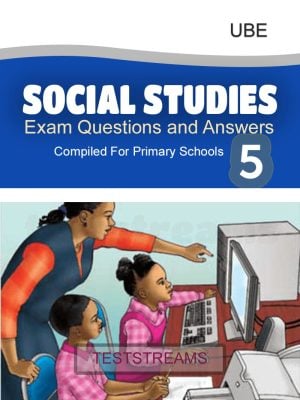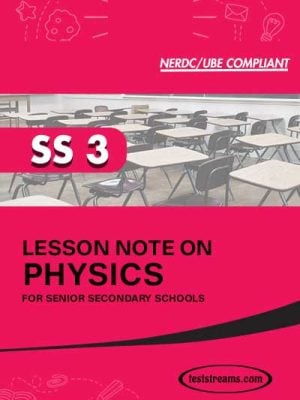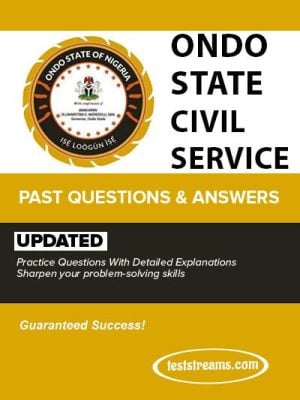Free BUA Cement Aptitude test Past Questions And Answers -PDF Download [Updated]
The BUA Cement Aptitude Test is a crucial step in the recruitment process for prospective employees. This test evaluates candidates’ cognitive abilities, problem-solving skills, and aptitude in various areas. Aspiring candidates often seek effective ways to prepare, and one invaluable resource is the Free BUA Cement Aptitude Test Past Questions. In this comprehensive guide, we will delve into the importance of past questions, strategies to tackle them, and tips for overall success.
About BUA Cement
BUA Cement Plc is the result of a merger between CCNN Plc and Obu Cement Company Plc (formerly Obu Cement Company Limited). Cement Company of Northern Nigeria (CCNN) was incorporated in 1962 and commenced operations in 1967, with an installed capacity of 100,000 mtpa at Kalambaina, Sokoto State.
In 1985, a Line-2, with an installed capacity of 500,000 was commissioned; though the Line-1 was eventually decommissioned a year later due to its uneconomic mode of operation.
The Significance of BUA Cement Aptitude Test Past Questions
Familiarity with Test Structure: Free BUA Cement aptitude tests often follow a specific structure and pattern. Studying past questions provides insights into the types of questions, format, and time constraints, helping candidates understand what to expect on test day.
Skill Enhancement: The past questions cover a range of topics, including numerical reasoning, verbal reasoning, abstract reasoning, and more. Consistent practice with these questions sharpens your analytical and logical thinking skills, which are essential for excelling in the test.
Confidence Boost: Knowing that you have tackled similar questions successfully in the past can significantly boost your confidence. Confidence is key to performing at your best and managing test-related stress.
Strategies for Effective Preparation
Organized Study Plan: Develop a structured study plan that allocates time for each section of the aptitude test. Consistent practice and review will ensure steady improvement.
Understand Concepts: Don’t just memorize answers. Instead, focus on understanding the underlying concepts and principles behind each question. This approach equips you to handle a variety of question variations.
Time Management: Time is of the essence during the test. Practice with a timer to simulate real test conditions. Allocate appropriate time to each question based on its complexity.
Review Mistakes: Analyze your mistakes thoroughly. Understand why you got a particular question wrong and learn from it. This process ensures that you don’t repeat the same errors.
Simulate Test Conditions: Take practice tests under conditions similar to the actual test. This includes a quiet environment, limited breaks, and adhering to time limits.
Tips for Success
Start Early: Adequate preparation time is essential for success. Begin your preparation well in advance to avoid last-minute cramming.
Stay Calm: Test anxiety can hinder your performance. Practice relaxation techniques, deep breathing, and positive visualization to stay calm during the test.
Balanced Approach: While focusing on your weaker areas is crucial, don’t neglect your strengths. A well-rounded approach to preparation ensures a comprehensive skill set.
Seek Guidance: If you encounter challenges, don’t hesitate to seek guidance from mentors, tutors, or online resources. Engaging with others can provide new perspectives and insights.
Sample Questions on Free BUA Cement Online Aptitude Test
LOGICAL THINKING
Question 1:
If all roses are flowers and some flowers fade quickly, which of the following statements must be true?
A) All roses fade quickly.
B) Some roses are flowers that fade quickly.
C) No flowers are roses that fade quickly.
D) Some roses are not flowers that fade quickly.
Answer: B) Some roses are flowers that fade quickly.
Question 2:
If pencils are made of wood and some wooden things are not cheap, which of the following statements cannot be true?
A) Some pencils are not cheap.
B) Some wooden things are cheap.
C) Some pencils are cheap.
D) All wooden things are not cheap.
Answer: D) All wooden things are not cheap.
Question 3:
John, Mary, and Jane are siblings. John is taller than Mary, and Mary is taller than Jane. Which of the following statements is true?
A) John is the shortest.
B) Jane is the tallest.
C) Mary is taller than John.
D) Jane is taller than Mary.
Answer: D) Jane is taller than Mary.
Question 4:
If all birds can fly and some penguins are birds, which of the following statements must be true?
A) All penguins can fly.
B) Some birds cannot fly.
C) All penguins are birds.
D) No birds can fly.
Answer: B) Some birds cannot fly.
Question 5:
If all cars have wheels and some bicycles have wheels, which of the following statements must be true?
A) Some cars are bicycles.
B) All bicycles are cars.
C) Some cars do not have wheels.
D) All cars are vehicles.
Answer: A) Some cars are bicycles.
Question 6:
If all politicians are talkative and some talkative people are wealthy, which of the following statements is true?
A) All politicians are wealthy.
B) Some politicians are not wealthy.
C) Some wealthy people are not politicians.
D) All wealthy people are talkative.
Answer: C) Some wealthy people are not politicians.
Question 7:
All architects are creative individuals, and some creative individuals are painters. What can you conclude?
A) All architects are painters.
B) Some painters are architects.
C) No architects are painters.
D) Some creative individuals are not painters.
Answer: B) Some painters are architects.
Question 8:
If all dogs are animals and some animals are brown, which of the following statements is true?
A) All brown things are dogs.
B) Some dogs are not brown.
C) Some animals are not brown.
D) All brown animals are dogs.
Answer: C) Some animals are not brown.
Question 9:
If all insects have six legs and some spiders are insects, which of the following statements is true?
A) All insects are spiders.
B) Some spiders have six legs.
C) No spiders have six legs.
D) Some insects are not spiders.
Answer: D) Some insects are not spiders.
Question 10:
If all books have pages and some magazines have pages, which of the following statements must be true?
A) Some magazines are books.
B) All books are magazines.
C) No books are magazines.
D) Some magazines are not books.
Answer: A) Some magazines are books.
VERBAL REASONING
Question 1:
Choose the synonym for “Eloquent”:
A) Confused
B) Fluent
C) Stubborn
D) Clumsy
Answer: B) Fluent
Question 2:
Choose the antonym for “Innocent”:
A) Guilty
B) Naive
C) Pure
D) Inexperienced
Answer: A) Guilty
Question 3:
Complete the analogy: Moon is to Night as Sun is to ___________.
A) Darkness
B) Sky
C) Day
D) Stars
Answer: C) Day
Question 4:
Which word does not belong with the others?
A) Table
B) Chair
C) Desk
D) Sofa
Answer: D) Sofa
Question 5:
Choose the correct word to fill in the blank: The concert was so loud that it _______ my ears.
A) Damaged
B) Hurts
C) Pained
D) Deafened
Answer: D) Deafened
Question 6:
Arrange the following words to form a meaningful sentence:
Went
Park
John
To
The
A) 3, 1, 4, 2, 5
B) 1, 2, 3, 4, 5
C) 3, 1, 5, 4, 2
D) 2, 3, 1, 5, 4
Answer: A) 3, 1, 4, 2, 5 (“John Went To The Park”)
Question 7:
Choose the word that best fits the sentence: The cat __________ on the windowsill.
A) Sleeps
B) Slept
C) Sleeping
D) Sleep
Answer: A) Sleeps
Question 8:
Which of the following is a compound word?
A) Happy
B) Sun
C) Playground
D) Fast
Answer: C) Playground
Question 9:
Choose the correct synonym for “Cautious”:
A) Reckless
B) Careful
C) Bold
D) Impulsive
Answer: B) Careful
Question 10:
Which of the following is an example of an onomatopoeia?
A) Laugh
B) Quiet
C) Buzz
D) Bright
Answer: C) Buzz
![Free Bua Cement Aptitude Test Past Questions And Answers -pdf Download [updated] Free Bua Cement Aptitude Test Past Questions And Answers -pdf Download [updated]](https://teststreams.com/wp-content/uploads/2024/11/BUA-CEMENT.jpg)

![Free Bua Cement Aptitude Test Past Questions And Answers -pdf Download [updated]](https://teststreams.com/wp-content/uploads/2024/11/bua-11.jpg)







